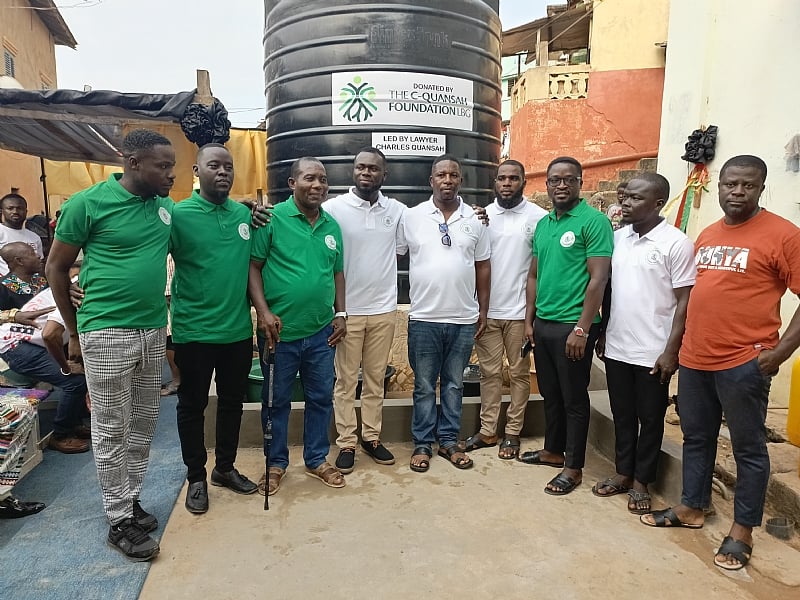The Gyegyeano and Brofoyedur communities in Cape Coast, Ghana, have long grappled with the critical challenge of accessing potable water. This daily struggle, impacting every facet of life from health and sanitation to economic productivity, has historically burdened residents, particularly women and children who often bear the primary responsibility of water collection. This long-standing issue, however, has recently witnessed a significant turning point thanks to the philanthropic intervention of the C-Quansah Foundation. Led by Lawyer Charles Quansah, the foundation orchestrated the commissioning and donation of boreholes to both communities, marking a pivotal moment in their pursuit of clean and reliable water access.
On August 2nd, 2025, the twin communities witnessed a ceremony that symbolized more than just the inauguration of water facilities; it represented a renewed hope and a significant stride towards a healthier and more prosperous future. The events, held first in Gyegyeano and subsequently in Brofoyedur, resonated with the deep-seated need for accessible water, a need the foundation recognized and aimed to address. The donation stemmed from a profound understanding of the communities’ plight, fueled by the personal connection of the foundation’s members, many of whom are natives of these areas. For Lawyer Quansah and the foundation, this intervention was not merely an act of charity, but a profound moral obligation – a return to the roots that nurtured them.
The foundation’s mission goes beyond simply providing infrastructure. Recognizing the crucial aspect of sustainability, the initiative incorporates a plan for long-term maintenance and operation. While the boreholes are a gift to the communities, a nominal fee will be charged for water usage. This modest contribution, managed by local operators, will create a self-sustaining system, covering maintenance costs and ensuring the continued functionality of the boreholes. This approach not only empowers the community to take ownership of the resource but also ensures the project’s long-term viability, avoiding the common pitfall of donated infrastructure falling into disrepair due to a lack of sustained upkeep.
The impact of this intervention is immeasurable. The residents of Gyegyeano and Brofoyedur expressed overwhelming gratitude for the foundation’s initiative, recognizing the transformative potential of readily available clean water. The boreholes, powered by electricity, symbolize a dramatic shift from the arduous daily task of water collection, freeing up time and energy for other productive activities. Women, who traditionally bear the brunt of water scarcity, will experience a significant reduction in their daily burden, allowing them to engage in other pursuits, including education, income-generating activities, and childcare. The availability of clean water will also directly contribute to improved sanitation and health outcomes within the communities, reducing the incidence of waterborne diseases and promoting overall well-being.
The C-Quansah Foundation, through this impactful initiative, has demonstrated the power of community-focused development. Their work transcends the mere provision of infrastructure; it embodies a commitment to sustainable solutions and community empowerment. The foundation’s model, rooted in local understanding and participation, holds valuable lessons for other development efforts. By involving the community in the management and maintenance of the boreholes, the foundation ensures not only the project’s longevity but also fosters a sense of ownership and responsibility among the beneficiaries. This grassroots approach, driven by a deep connection to the community, sets a compelling example for other organizations striving to make a tangible difference.
While the initial impact of the boreholes is undeniable and celebrated, the long-term success hinges on sustained community involvement and effective management. Questions remain about the community’s capacity to maintain the infrastructure over the long term and the ability of the locally appointed operators to manage the funds effectively. Continuous monitoring and support from the foundation, potentially in collaboration with local government agencies, will be crucial to ensure the project’s ongoing success and to navigate potential challenges. This continued engagement will reinforce the commitment to sustainability and empower the communities to take ownership of their newfound water security. Ultimately, the C-Quansah Foundation’s initiative stands as a testament to the transformative potential of localized, community-driven development.


